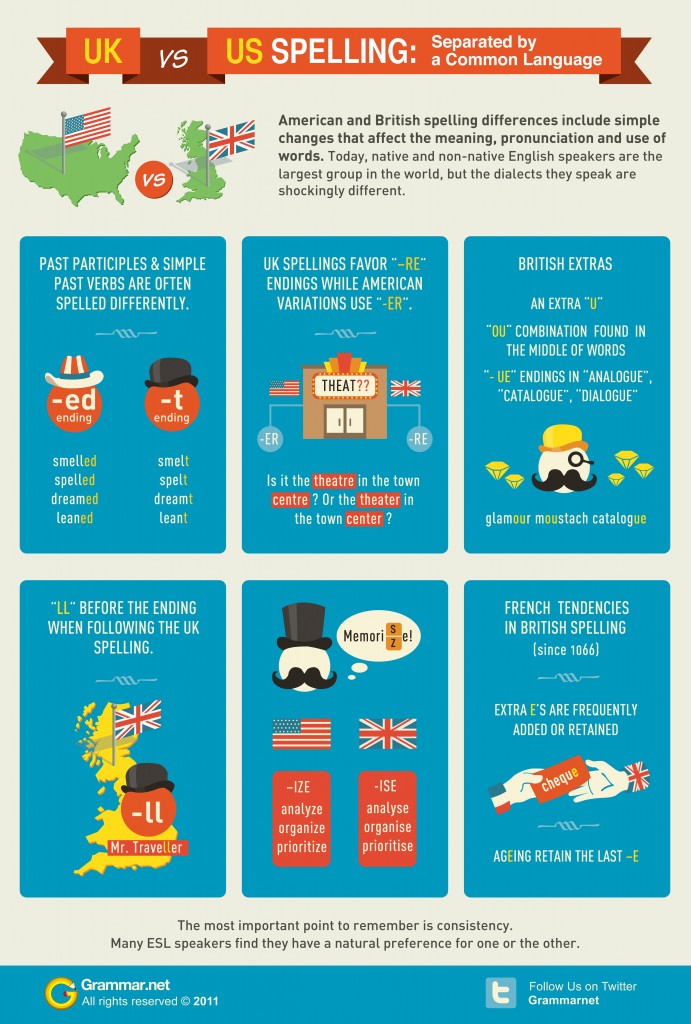We all know that there are vocabulary differences between British and American English. In fact, I have written about this topic in the past, but today I thought we would take a look at this summary infografic by Grammar.net that highlights more than just vocabulary differences. Here you can see that there are a number of systematic spelling differences among words used in America and Great Britain.

Image from http://www.grammar.net/hi-res.
You can read about the difference highlighted in the Grammar.net infographic yourself, so let me present a few other systematic spelling differences between the USA and Great Britain that are not covered in the graphic above.
-our vs. -or
Most words that end in an unstressed -our in British English end in -or in American English.
Examples
American English: color, flavor, humor
British English: colour, flavour, humour
-er vs. –re
Most English words that today end in -er were once spelled -re. In American English, most of the old –re spelling has been changed to -er spelling, but in British English only some words have made this change.
Examples
American English: liter, theater, center
British English: litre, theatre, centre
-yse vs. -yze
In British English words end in -yse with ‘s’, whereas in American English words end in –yze, with ‘z’.
Examples
American English: analyze, paralyze
British English: analyse, paralyse
-logue vs. –log and –gogue vs. –gog
In British English the word endings –logue and –gogue are used over the word ending –log and –gog, which are found in American English.
Examples
American English: catalog, dialog, analog
British English: catalogue, dialogue, analogue
Keep in mind with these spelling differences that both ways of spelling these words are correct, they are just correct in different places in the world. Also it is good to note that the Australians and Canadians tend to follow the British spelling rules, not the American’s rules.






Comments:
Adriana:
Hello Gabriele, I find so helpful what you have just shared with us. I would like to ask, is it correct for english learners to speak mixing both american and british spelling?
Thanks so much.
gabriele:
@Adriana Hi Adriana,
I’m glad you are enjoying the blog! I think you ask a great question; is it okay to mix American and British English vocabulary? Different people may have different answers, but my answer is: there is no problem with mixing this vocabulary. There is nothing wrong with mixing words that are more common in England with words that are more common in America. For the most part, people will definitely understand you in both countries no matter which country-specific words you use.
-Gabriele